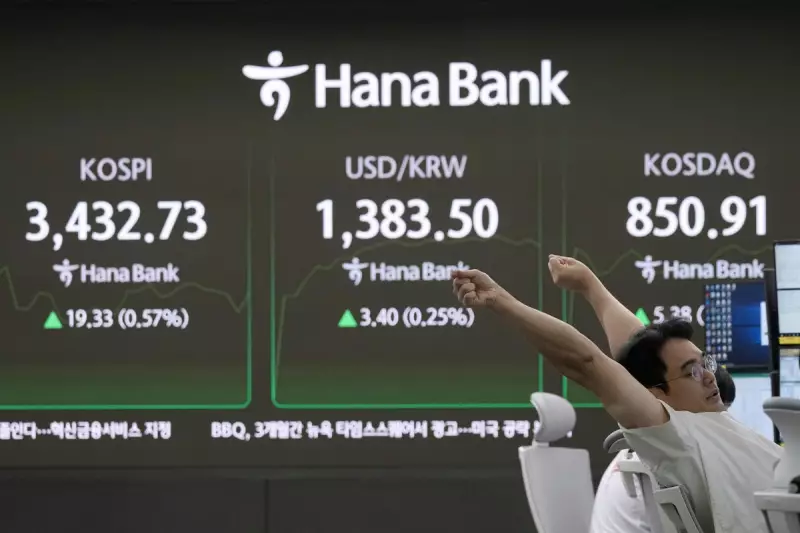
Asian financial markets experienced a severe downturn on Tuesday, mirroring Wall Street's sharp decline as growing fears of sustained high US interest rates continue to reverberate through global markets.
The region's major indices registered significant losses, with Japan's Nikkei 225 falling by 2.3% and Australia's S&P/ASX 200 dropping 1.1%. The sell-off represents the most substantial market retreat since August, shaking investor confidence across the Asia-Pacific region.
Federal Reserve Anxiety Drives Global Sell-Off
Market analysts attribute the widespread decline to mounting concerns that the US Federal Reserve will maintain its restrictive monetary policy for longer than previously anticipated. This apprehension follows recent economic data suggesting persistent inflationary pressures in the American economy.
The ripple effect from Wall Street's Monday performance, where the S&P 500 fell by 1.5% and the Nasdaq Composite dropped 1.6%, has created a domino effect across Asian trading floors. Investors are increasingly pricing in the possibility that the Fed might implement at least one more rate hike this year.
Bank of Japan Intervenes as Yen Weakens
Adding to the regional financial turbulence, the Bank of Japan has conducted emergency operations to stabilize government bonds as the yen continues to weaken against the US dollar. The currency's decline toward 149 yen per dollar has prompted speculation about potential intervention from Japanese monetary authorities.
Bank of Japan Governor Kazuo Ueda stated that the central bank would "patiently maintain ultra-loose policy settings" despite mounting pressure from currency devaluation and imported inflation.
Philippine Banking Sector Under Scrutiny
The market turmoil has particularly impacted the Philippine financial sector, where the benchmark index fell by 2.5%. Banking stocks led the decline amid growing concerns about the industry's stability and exposure to broader economic headwinds.
Financial experts note that regional banks across Asia are facing increased pressure from higher funding costs and potential loan defaults as economic conditions tighten. This has created a perfect storm for financial institutions already grappling with post-pandemic recovery challenges.
Global Economic Implications
The synchronous decline across Asian markets underscores the interconnected nature of global finance and the overwhelming influence of US monetary policy on worldwide investment flows. As bond yields continue to rise and risk appetite diminishes, analysts warn of continued volatility in the coming weeks.
Market participants are now closely monitoring upcoming economic indicators and central bank communications for signals about the future direction of monetary policy, particularly from the Federal Reserve's next meeting in November.





